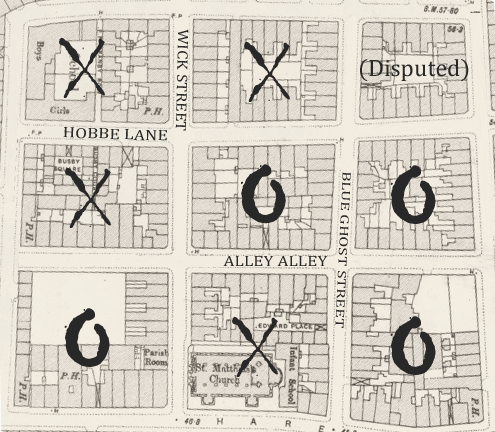[quote=Flyte][quote=Alexander Feld]"The repeated motifs of Jorge Luis Borges’s fictional works…"
Any thoughts on this being a direct inspiration?[/quote]I don’t think Borges references come much clearer than a Labyrinth of Tigers full ofsinister caged creatures from behind the mirrors.I don’t think the dream sequences are much influenced by Borges, though, and certainly not the ones which take their names from The Waste Land. Is Someone There has some overlap with its mirrors and, especially, its doppelgangers. But its narrative arc – beginning with minor rebellions by the player’s reflection and progressing through the player’s gradual subordination until their roles are reversed – is so strongly motivated by internal features of the setting that it doesn’t feel like a shout-out to me.[/quote]
I’m not familiar with Borges’s entire oeuvre, but I have a great fondness for The Book of Imaginary Beings. There’s an entry on the Fauna of Mirrors in it.
[quote=Fauna of Mirrors]The Fish is a shifting and shining creature that nobody has ever caught but that many say they have glimpsed in the depths of mirrors. According to Herbert Allen Giles, belief in the Fish is part of a larger myth that goes back to the times of the Yellow Emperor. In those days the world of mirrors and the world of men were not, as they are now, cut off from each other. They were, besides, quite different; neither beings nor colors nor shapes were the same. Both kingdoms lived in harmony; you could come and go through mirrors.
One night the mirror people invaded the earth. Their power was great, but at the end of bloody warfare the magic arts of the Yellow Emperor prevailed. He repulsed the invaders, imprisoned them in their mirrors, and forced on them the task of repeating, as though in a kind of dream, all the actions of men. He stripped them of their power and of their forms and reduced them to mere reflections. Nonetheless, a day will come when the spell will be shaken off. The first to awaken will be the Fish.
Deep in the mirror we will perceive a very faint line and the color of this line will be like no other color. Later on, other shapes will begin to stir. Little by little they will differ from us; little by little they will not imitate us. They will break through the barriers of glass or metal. Side by side with these mirror creatures, the creatures of water will join the battle. And this time, they will not be defeated.
In Yunnan they do not speak of the Fish but of the Tiger of the Mirror. Others believe that in advance of the invasion we will hear from the depths of mirrors the clatter of weapons.[/quote]
When I first read it, the only connection I saw was the idea of a world-behind-the-mirror. Now I can’t help but think of the fatelocked Gallery (or Prison) of Serpents.[li]
edited by theodor_gylden on 1/2/2014
